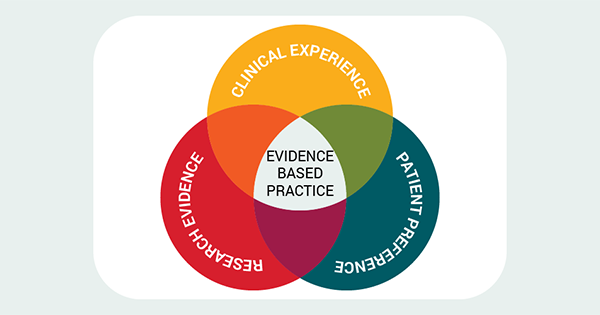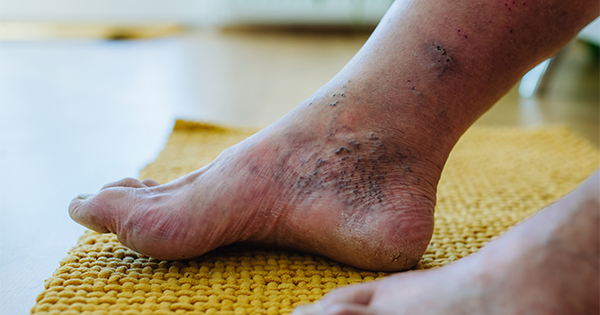In this paper, the first in a mini-series about evidence-based practice, we will consider what we actually mean by evidence and, more importantly, evidence-based practice (EBP). We will consider some of the definitions which apply to EBP and break these down so we can better understand what they require in the practice setting.
We will also consider why EBP is an important aspect of modern health and social care delivery and, therefore, why it is important to understand what it is and how to apply it.
In future papers in this miniseries, we will also explore some of the so-called hierarchies of evidence and look at some of the negative aspects of EBP. We will advance some models for the critical appraisal of research and consider how health and social care professionals might apply these models.
Definitions of evidence-based practice
There is a frequent and ongoing debate in professional journals as to what constitutes evidence and what this means for EBP. This debate often confuses practitioners and does little to help them understand what they need to do for adopting and applying evidence.
The diversity of definitions is in part defined by the philosophical bases from which the different individuals work. There are those who believe all evidence needs to come from quantifiable research, such as randomised controlled trials, and remove subjective opinion; equally, there are those who identify evidence as coming from a multiplicity of sources which might include experience and opinion.
The debate is further confused by the multiplicity of terminology applied to it; for example, evidence-based nursing, evidence-based practice, evidence-based medicine and research-informed practice. What is important at this stage is that we accept the debate is about the application of evidence, in some form, to clinical practice.
The most famous and widely cited definition of evidence-based medicine comes from Sackett et al (1996) whose definition perhaps sparked a renewed interest in evidence in the 1990’s and stated that evidence-based medicine is:
“The conscientious, explicit and judicious use of current best evidence in making decisions about the care of the individual patient. It means integrating individual clinical expertise with the best available external clinical evidence from systematic research.”
This definition opened up a whole host of important discussions which apply to the use of evidence in the practice setting; these discussions stated that evidence is:
- Conscientious, by which they mean practitioners make a positive choice to use it
- Explicit, that is, its use can be explained
- Judicious, which points to the fact that the practitioner applies it with considerable thought with regard to the situation in front of them
- About the care of the individual patient, which identifies that one-size might not fit all and that the evidence has to be considered in relation to the needs of the individual
- Applied by integrating personal experience and knowledge with research, which highlights that the professional plays an important role in understanding how it applies with regard to their own previous experience.
The overarching message from this definition mainly refers to medicine but applies to all forms of health and social care practice, and is that the individual practitioner has to play a role in interpreting, contextualising and applying the evidence as it best fits the patient in front of them.
Around the same time, McKibbon (1998) provided a more challenging and complete definition of EBP as being:
“An approach to health care wherein health professionals use the best evidence possible, i.e. the most appropriate information available, to make clinical decisions for individual patients. EBP values, enhances and builds on clinical expertise, knowledge of disease mechanisms, and pathophysiology. It involves complex and conscientious decision-making based not only on the available evidence but also on patient characteristics, situations, and preferences. It recognises that health care is individualised and ever changing and involves uncertainties and probabilities. Ultimately EBP is the formalisation of the care process that the best clinicians have practised for generations.”





